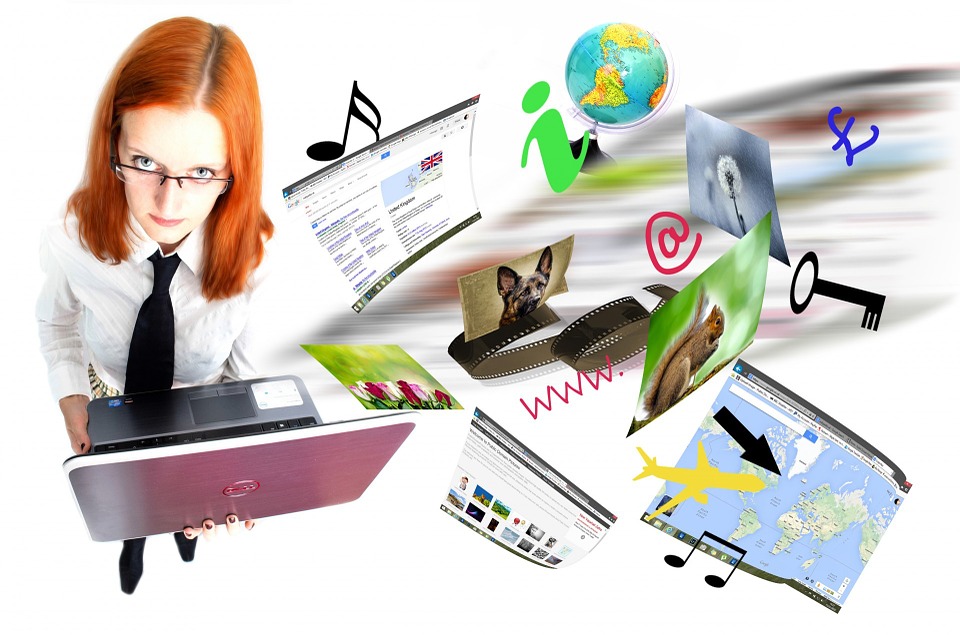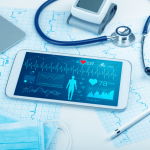“Change is the only constant”. This statement holds true in all the major spheres of life. Advances made in the technological domain is also one of the inevitable features that enhances the compatibility quotient of the devices (e.g., smartphone, laptops, cameras, or other items with an OS). Technology and globalization go hand-in-hand creating shifts in the overall propensity for the daily human behavior. The penetration of the idea behind digitization of the machinery in all the major fields is to make a task convenient and less time-consuming.
In short, technology has created a constant need for improvement in its application in an industry as well as during a routine work. www.techedbloggers.net enables readers to engage in topics in relation to new inventions in technology to be used by a traveler, a student, or even a company.
Digitization of the world in the 21st century
‘Artificial Intelligence (or AI)’, ‘Internet of Things (or IoT)’, ‘Machine Learning (or ML)’, Big Data Analysis, ‘Information & Communication Technology (ICT)’. Do these terminologies ring a bell? Students might immediately relate to these terms and jump up their seats. It is quite an in-thing now!
So what do you mean by these terms and how are they impacting the environment (social as well as economical)?
Artificial Intelligence (AI)
‘AI’ is one of the most searched and debated topics of today’s modern world. Machines taking over humans is a concept which has led to the development of ‘AI’ so far. One of the most fascinating innovations is ‘Sophia’- the Human-like Robot which was conferred the prestigious citizenship of Saudi Arabia recently.
Artificial Intelligence is the concept of mirroring the human cognitive intelligence through machines. The integration of skills like assimilation and accession of information (based on rules determined), reasoning (to arrive at the solution to certain Gordian knot), and self-rectification.
Artificial Intelligence has the ability to react to a state of affairs by applying knowledge and understanding similar to a human being. An AI system can be categorized into different subheadings:
- Theory of Mind – It works on the theory of understanding the belief, intentions, and desires of a person that may influence their decision-making capabilities.
- Reactive Machines – Reactive machines scrutinizes the moves made by the adversary party and the machine itself. It then opts for the most calculated move.
- Limited Memory – AI systems aligned with this category enhance the decision-making outputs utilizing the past experience stored in them.
- Self-awareness – To reciprocate the behavioral pattern of humans, AI developers are working on creating machines to have their own compos mentis. This will empower them to interpret the human feelings or emotions.
Impact of AI on the society is still a debatable topic. But this is also one of the topics in demand, being integrated into the academic curriculum by the majority of the Academic community worldwide. Sophomores in the Engineering streams are opting for AI specific courses for higher studies as there is a huge demand in industries for skilled AI professionals.
Internet of Things (IoT)
Have you ever pondered over the concept of ‘Smart Homes’? Imagine the world where you can control your home temperature by operating the air conditioner from your office or any other distant location. The seamless connectivity and interoperability of multiple computers in a large office space is linked to a common router also works on the theme of IoT.
Internet of Things (IoT) is primarily the conglomeration of devices and systems organized systematically and makes use of encapsulated sensors and actuators in the machines or other devices.
Thematically, the use of IoT in the consumer space is to flamboyantly enhance the energy efficiency, education, security, health and other facets of quotidian life. Similarly, larger organizations use IoT to strengthen the decision-making outputs and increasing productivity in sectors like agriculture, manufacturing, retail, et al.
IoT has a subset termed as Machine-to-Machine (M2M) operates on the wireless technology bridging mobile networks to each other as well as the internet, eliminating human involvement downright. Evolution of IoT in homes and enterprises has boosted the overall productivity of life-enhancing services. Smart homes are now capable of negating any threats caused due to security issues. All thanks to IoT.
Information & Communication Technology (ICT)
Information & Communication Technology (ICT) deals with technology prevailing in the media industry that includes broadcast media, telecommunication, audiovisual processing, network-based control and monitoring roles, Intuitive building management systems, etc. ICT has a much broader delineation in the digital context:
- Increase in the number of electric appliances and devices amount to an increase in the intricate wiring system.
- To eliminate a confused mesh structure, technologists conceptualized a single cable system (integrating multiple devices).
- One can easily derive the use of ICT in how an Internet Service Provider (ISP) engages in offering internet, television and phone services (at the same time) to consumers and businesses.
Exempting multiple cables to distribute signals has worked wonders to boost the economy as it has taken care of maintenance costs, installation and servicing simultaneously. ICT also encourages the healthcare and disease prevention industry by engaging in activities to ameliorate economic growth, social infrastructure and other catalysts of human health.
Big Data
Data is an integral part of the technology wave that has the entire global fraternity immersed in it. To invigorate the storage space of data and also make it safe for enterprises, tech-gurus conceived the idea of integrating data with technology.
- Big Data is the extensive spread of data in a structured or unstructured format.
- Big data analytics refers to the process of scrutinizing a data colossal and extract the underlining patterns and the acumen.
- Big Data analytics allows business to provide better service to customers by utilizing applications in the B2C (Business to Customer) sphere.
- This technique arrests information from other technological purviews like natural language processing, data mining, machine learning, and statistics.
- techedbloggers.net emphasizes being an information center for knowledge seekers.
There has been significant sagacity that technology and its engagements in the global arena have to offer.







